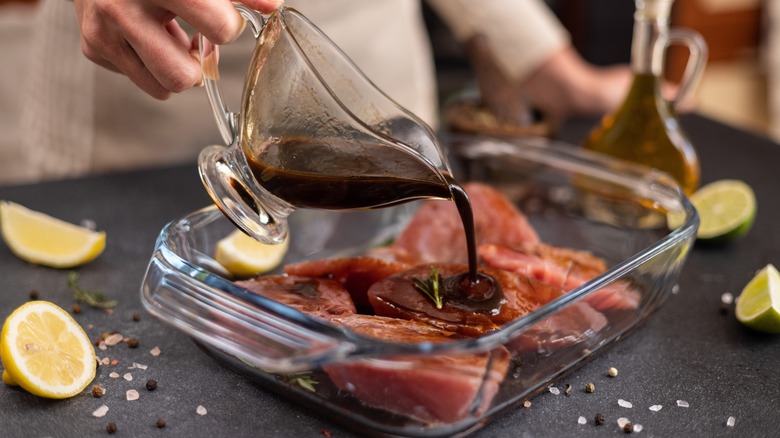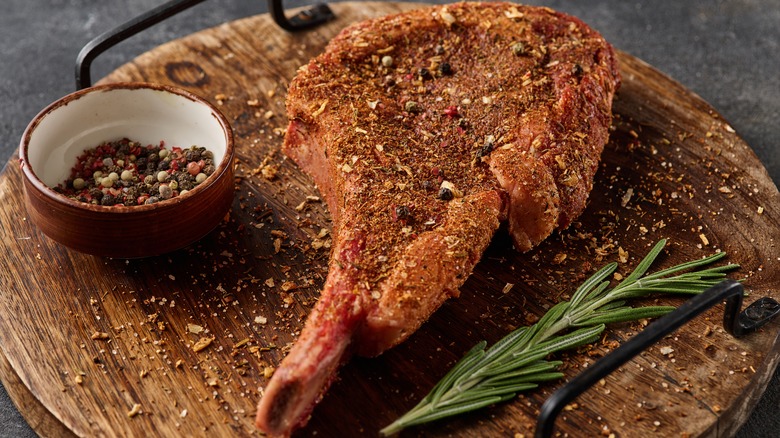For The Best Results On The Grill, Avoid This Steak Marinade
From simple three ingredient mixtures to tenderizing milk baths, it's hard to go wrong with a steak marinade. But according to David "Chef Fig" Figueroa, grill expert and co-founder of Melinda's Foods, there are two ingredients grillers should never go overboard on when preparing a marinade: sugar and fat.
"Sugar and excess fat can cause serious flare-ups and uneven cooking," Figueroa told Food Republic. "You'll get scorched spots before the steak hits medium-rare. Caramelization is great, but you want Maillard, not marshmallow burn." While a touch of sweetness can complement marbled cuts and a bit of fat helps cultivate that desired crust, it's easy to go overboard with either. Sugar burns around 350 degrees Fahrenheit, and dripping fat is a major cause of grill flame-ups which can cause uneven cooking and may even pose a safety hazard.
"High-sugar marinades also mask the natural flavor of a good steak. If your beef's legit, it shouldn't need to hide under a sugar coat," Figueroa continued. To properly incorporate sweetness into your marinade, try using ingredients where you can control the sugar level, like a homemade sweet tea marinade, or something with natural sugars, like pureed pear. The additional flavors provided by both ingredients help expand your steak's flavor profile as well, giving you more opportunities to synergize with other seasoning options that Figueroa claims are more likely to yield a great grilled dinner.
Expert-recommended rubs and marinades
Whether you choose to marinade or dry-rub your steak, each seasoning method has its advantages. If you love a good sear on your steak, dry-rubs add no additional moisture, so there's no water to evaporate before that beautiful Maillard reaction starts to develop. Conversely, if you like your steak more well done, then a marinade adds extra liquid to ensure it doesn't dry out over longer cooking times.
"For marinades, go acid-light," David Figueroa advised. "A splash of citrus or vinegar, olive oil, garlic, herbs, maybe a touch of soy or fish sauce for umami." Acidic ingredients help tenderize the steak, but keep in mind that if you get the timing or ratios wrong, they may make your steak mushy instead. If you use olive oil, you'll need a variety with a higher smoke point to stand up to the grill's intense heat, so steer clear of extra-virgin ones.
As for seasonings, our expert has got you covered. "Dry rubs are my go-to — salt, coarse black pepper, and something like Aleppo or guajillo chili for a subtle kick," Figueroa explained. "I also love rubbing aged balsamic vinegar into a steak." This flavor enhancer only needs a grill and a bit of fat to develop a beautiful, hands-off crust. Coupled with the advantages of a dry rub, the one-two punch of flavor makes cooking a restaurant-quality steak an absolute breeze.


